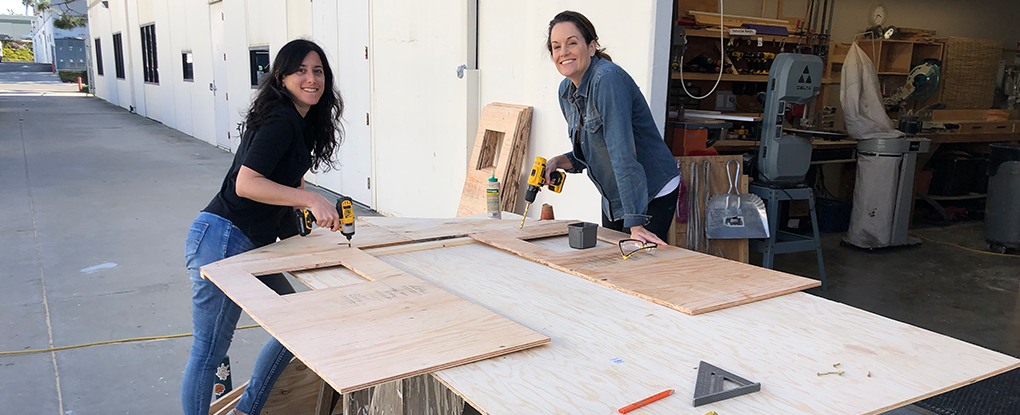
Evolving Approaches to Meaningful Work
Most of us want to do meaningful work—something that gets us jumping out of bed every morning (or at the very least makes us feel like we’re contributing directly to an organization’s success). If that sounds like you, you’re not alone; research from LinkedIn shows that nearly three-quarters of U.S. workers want a job where they feel like their work “matters.”
Taken on its own, that statistic makes it seem like all workers are looking for jobs at nonprofits, government agencies or purpose-driven companies—but the truth is far more complicated. It turns out that the definition of “meaningful work” varies widely by individual, workplace, and generation.
Purpose and Meaning: Meaningless Branding Buzzwords or Workplace Imperative?
A recent headline in AdWeek declared that, “purpose” was the “empty buzzword” of the year in 2019, making the rounds everywhere from the Cannes Lions awards to agency meetings. On the flip side, the author acknowledges that purpose is becoming “increasingly important to consumers and society at large.”
That’s the tricky thing about weighty words like meaning or purpose: their definition can be vague and personally subjective. However, managers and marketers alike are increasingly being challenged to connect consumers and employees with a “higher purpose” in order to increase loyalty and product sales.
How do we define “purpose” or “meaning” in our workplaces, and avoid falling into the empty buzzword trap? While we may not be able point to a single definition, we instinctively understand and respond to authentic examples of purpose when we see them. The difference between branding buzzwords and that mission-critical north star can often be found in intent and impact. Purpose-driven work goes beyond completing a task or generating revenue to make a measurable impact for the community or society as a whole.
For example: there’s a difference between simply working for a company that says they’re “purpose-driven,” and actively seeing how your work connects to company goals or the common good. Sure, your employer may have a nice-sounding mission statement, but what are their actual goals for making the world a better place? It’s one thing to rally employees and consumers behind a product and call that “purpose,” but it’s another thing entirely to ensure that product or service measurably improves people’s lives.
What is Meaningful Work? Depends On Your Generation
Employees who feel like their work creates a positive impact are three times more productive, and stay on the job longer. If your employees are motivated, you could essentially triple your current output with inspiration, rather than more hiring. Therefore, it’s not only aspirational but also practical to want to create a purpose-driven environment where your employees feel like they’re doing meaningful work. However, it’s worth remembering that workers of different ages have different motivations for being at work.
For the first time in modern history, five generations are currently working side-by-side. Your entry-level workers may be members of Generation Z, born in the mid to late 1990s, who report to millennial or Gen X managers, who work for a company run by Baby Boomers or even members of the Silent Generation before them (or, increasingly, some of those older folks are being managed by younger generations).
Here’s what’s surprising: while much has been written about millennials being the purpose-driven generation, that’s not necessarily the case. A recent survey of 26,000 global LinkedIn users found that 48 percent of baby boomers (workers aged 51+) prioritize purpose over pay, followed by Gen Xers (aged 36-51) with 38 percent, and millennials coming in third at just 30 percent.
While younger generations (millennials and, behind them, Gen Z) are often more vocal about societal issues like sustainability, once they enter the workforce they tend to focus first on establishing financial independence and paying off student loans. On the other end of the spectrum, the oldest generation still in the workforce—known as traditionalists or the Silent Generation born between 1928 and 1945—are the last generation to value corporate loyalty and prioritize money over meaning. Both positions are understandable, considering these workers were born during or on the heels of the Great Depression, and grew up working in an era of long-term employment and company-funded pensions.
In the middle are the Baby Boomers and Gen X workers who have been in the workforce long enough to establish themselves in higher-paying leadership positions, and figure out what aspects of their job they find most energizing.
If these findings confuse you, consider this: as people age, they start to think more about their contribution to society. This psychological shift leads them to increasingly prioritize purpose at work. What that purpose looks like can be anything from joining Doctors Without Borders to being a motivational mentor at a global investment banking firm. That’s the best part about work that matters – it’s broad enough to encompass the best in all of us.
Interested in hearing more about Civilian’s approach to Work that Matters? Check out my recent podcast and let us know what you think in the comments!